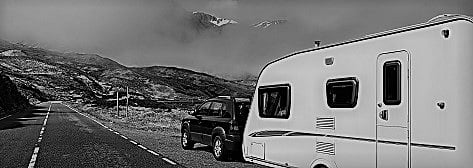Car Insurance
articles
Car Insurance – are you correctly insured?
We asked our experts to provide us with some insight into car insurance and they answered the following frequently asked questions for us. If you have any additional queries, remember your broker is only a phone call away.
1. How do I know what type of car insurance to get?
There are three types of car insurance available - comprehensive, third party, fire and theft and third party only cover.
-
- Comprehensive vehicle cover will protect your car against any accident damage to your vehicle or if it is stolen as well as cover damage caused to someone else’s vehicle or other property.
- With third party, fire and theft cover, you may claim for certain specified damage to your vehicle, such as fire damage, or if it is stolen. With such cover, accident damage to your vehicle is not covered but the damage caused to the third parties’ vehicle or other property is covered.
- Third party cover means that you can only claim for the damage you caused to other parties property or their vehicle.
2. How much car insurance cover do I need?
Choosing the correct insurance policy to suit your needs is the first step in insuring your car, but the next is to ensure that it is insured for the correct value.
Many motorists suffer financial loss because their cars are not adequately insured. There are three different values for which a car can be insured – market, retail or trade. However, there are pros and cons to each and it is essential to understand what they are.
For new cars, determining the amount to insure is usually based on the purchase value or retail value.
For a used car or a car that is more than two years old, market value, which is the average of the car’s trade and retail values, is often the best bet and this can be determined by looking up current prices for similar models for sale in the newspaper or in one of the car magazines.
The trade value is the amount which a dealer would offer you on a trade-in. This is usually the lowest value.
Motorists must, at all costs, avoid insuring their car below the actual value in an effort to save on insurance premiums.
If you have to make a claim, you could then find yourself significantly short on the amount that your insurance pays out compared to the actual amount it will cost to replace or repair your car.
3. What hidden terms or small print should I know about when getting car insurance?
So many of us buy items and services, including insurance, and sign on the dotted line without really taking the time to read the fine print in order to truly understand what we are buying.
Some people get caught despite reading the fine print, simply because they don’t understand what it means. It is important for consumers to know the ins and outs of their short-term insurance policies and understand the implications. If you are unsure ask your broker.
All insurance companies have their own rules and conditions with which policyholders must comply in order to be covered and have their claims paid. For instance, insurance companies have procedures and deadlines for submitting claims; some might oblige policyholders to submit their claims within 60 days of an incident while others might prescribe a longer timeframe. Claims submitted after the prescribed timeframe might not be paid.
All insurance policies also have certain exclusions. For instance, if a vehicle-owner causes an accident and the tread on their car’s tyres don’t meet South African road regulations, their insurer could refuse to pay their claim. Likewise, if a policyholder’s house or car is broken into but it is found that a window of the car or house was left open or unlocked, there’s a probability that the claim won’t be paid.
It’s also worth noting that no insurance company will pay claims for losses or damages to your car if you happen to be in an accident while driving under the influence of alcohol or drugs.
Furthermore, if you tell your insurer that your car is equipped with anti-theft devices and is locked up in a secure garage at night but it’s not the case and you are caught out, your policy could become null and void and you won’t be covered at all.
4. Do I insure my vehicle for Domestic or Business Use?
Your insurance policy sets out the uses for which your car is insured. If you have told your insurer that you only use your car for pleasure purposes and for driving to work and back, then this is what you will be insured for.
If you are involved in an accident while using the vehicle for business purposes and are only insured for personal use, then your insurer would be within its rights to reject your claim and you will find yourself footing the bill for the repair cost, yourself.
The type of insurance you need for your vehicle would be determined by the following criteria:
- If you use your vehicle for pleasure purposes and to drive to and from work only, then you can insure the vehicle for private or personal use.
- If you occasionally use the car for business purposes, for example, driving to one or two meetings per month, then you will be adequately covered on a limited business use insurance policy.
- If, however you rely on your personal vehicle to conduct business, for example as a sales representatives or financial consultant who goes to see clients away from the office, then you will need to be insured for full business use.
The best thing to do is talk to your broker, who will be able to advise which policy is right for you, dependant on your needs and usage.




